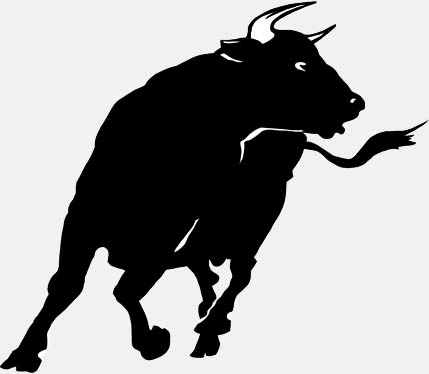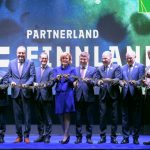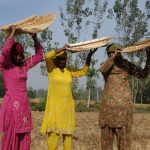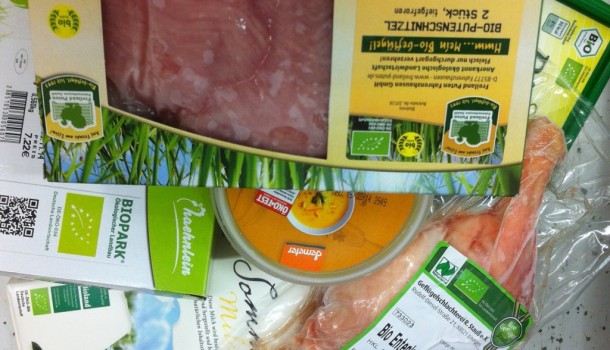
What do the organic label mean?
Bio booming. Since the mid-nineties, the organic plaques shoot like mushrooms from the ground. These so-called ‘Mercesdes-star organic farming‘ promise high quality, animal welfare, health and environmental protection at first glance, but there are big differences. The Demeter farms have some of the highest requirements in terms of animal welfare. Biokreis is known for its careful use of the poultry etc ..
German Bio-Label
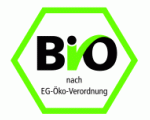
german-Bio-label
The Basics of Organic plaques form the German organic seal and the European Bio-Siegel. Provider with the octagonal sticker waive their food, for example, flavor enhancers, artificial flavorings and colorings. The goods must not contain more than five percent of conventionally grown ingredients. Animals may be fed only organic feed, the use of antibiotics is very limited at the German organic seal, but not prohibited. Overall, they are more stringent than conventional, Genfutter is not totally prohibited additives such as nitrite are allowed.
EU-Organic Logo
Nor the products carry both logos. In the future, all foods that advertise with the terms “organic” and “eco“, only carry the EU organic logo. Their producers and manufacturers must comply with these provisions of the EU Organic Regulation:
- No irradiation of organic foods
- no genetically modified organisms
- no plant protection with synthetic chemical substances
- not easily soluble mineral fertilizers
- varied and wide crop rotation
- area-based, animal welfare and
- Feeding with organically produced feed without the addition of antibiotics and growth promoters.
“Organic” and “eco“, which are guaranteed by EU law across Europe protected terms, the legal minimum standards. All the products are described as must the above Criteria of the organic label. With “organic” is only allowed to decorate, who is certified.”
Where “organic” or “organic“ it says, is “organic” or “organic” in it. Both terms are protected by the EC Eco–Regulation – as these names:
Where “organic” or “organic” it says, is “organic” or “organic” in it. Both terms are protected by the EC Eco–Regulation – as these names:
o “biological / ecological“
o “controlled ecological / biological“
o “biological / organic farming“
o “biodynamic” and
o “bio-organic”.
Not only, therefore, misleading designations are as:
- “Wildcrafted”
- “State-approved farms“
- “Under independent control”
- “Unsprayed”
- “No spray“
- “From integrated agriculture“
- “Out of contract farming“
- “From alternative management” or
- “Made of environmentally friendly cultivation”.
The permission for use of a seal is regulated by the respective “Publisher“. Compliance with the criteria to be guaranteed by the manufacturer documentation requirements. Manufacturers will be “monitored” by the relevant state inspection bodies, which are identified with a code on the packaging, similar to the TÜV.
Sustainable, environmentally friendly, humanely they should be – in Germany there are over 100 certified and organic seal, the promised compliance with these criteria for foodstuffs. Much more stringent are the requirements for a seal with the federations.
The most important associations in Germany with improved and much higher guidelines are:
 DEMETER (1928)
DEMETER (1928)
The Demeter seal represents the oldest and most rigorous farming association in Germany.
Since 1928, the Demeter Association operates according to the criteria of biodynamic agriculture, founder of Anthroposophy, Rudolf Steiner. Steiner developed a concept for a holistic agriculture, everything a cycle equal and mutually supported. The rotations are varied and the manure from the animals is brought as manure on the fields. So, the bottom can build a beautiful humus layer with appropriate soil fertility. The milk is processed into cheese and whey from the cheese get the pigs … Farmers focus on the unity of man and nature and produce 100% organic and holistic. Even the seed is removed from the organic farming. In addition, many biodynamic farms operate social projects and see themselves in a holistic responsibility for the earth and the cosmos. This organic seal it in place for food, clothing and cosmetics.
The global organization is represented in Germany with regional groupings in all provinces.
 BIOLAND
(1976)
BIOLAND
(1976)
The criteria for organic seal of organic goes far beyond the EU Organic Regulation. The cultivation of the association–based system, similar to Demeter, operating on a closed circuit, is respected by, inter alia, on the long-term conservation of soil fertility. Production and feed derived largely from the farm, diseased animals are treated naturopathy.
Organic began 50 years ago with the bio-organic farming, then ridiculed by many farmers and consumers. Meanwhile, Bioland is regarded as one of the leading organic farming associations in Germany.
Organic waived synthetic pesticides and synthetic chemical nitrogen fertilizer. The animals are kept outside the food and carefully processed. It is not used Nitritsalt. This results in an environmentally sound and sustainable food production. Today, about 5,000 organic farmers and about 850 food manufacturers work such as bakeries, butcher shops, dairies, breweries, mills, restaurants, juice maker according to the organic regulations.
Organic products can be found in farm shops at street markets, in health food stores, supermarkets and the delivery service.
 NATURLAND
(seit 1982)
NATURLAND
(seit 1982)
Naturland was founded in 1982 in Gräfelfing near Munich. Worldwide, the association is one of the major certification organizations for organic products. Her duties looks natural land to protect the environment and conservation of natural resources through a natural modern economy in all sectors of farming. Also Naturland is an organic seal with high standards for the production and processing. The Naturland label features in addition to food and wood products, and textiles.
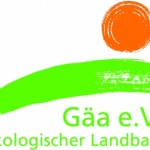 Organic farming GÄA e.V. (1989)
Organic farming GÄA e.V. (1989)
The association, founded in Dresden has its roots in the church environmental movement in the GDR. It was named after the Greek goddess of the earth, Gaea. Work focuses East Germany. Here Gaea is a particularly during structural assembly for organic farming. These includes specialized farms for growing herbs and berries, vegetable, seed or fish farming. The Gaea guidelines are based on high standards for organic label and go on many points about the EU Organic Regulation addition.
BIOPARK organic farming (1991)
organic farming (1991)
Biopark registered association based in Guestrow in eastern Germany was founded in 1991 by 16 companies in Mecklenburg–Vorpommern. Today the organization is represented nationwide. As with other ecological associations also waive Biopark farmers on genetic engineering, chemistry or synthetic nitrogen fertilizer. Some farmers manage land in protected areas. The animal feed for the cattle comes from our own vineyards operation, performance or conveyor feed of animal origin are banned for this organic seal. Main directions of production operations are suckler cow and ewes, pork and poultry production, landscaping with farm animals and cultivation of food crops.
BIOKREIS registered association r.a. (1979)
Biokreis was founded in 1979 as “Biokreis Eastern Bavaria” of farmers and consumers in Passau. The Biokreis er.a. wants to promote in a manageable area according to ecological principles and get a peasant agriculture on the basis of organic farming cooperation of producers, consumers and processors. The originally active mainly in Eastern Bavaria association based in Passau is now represented nationwide. Especially in chicken rearing he excels with a appropriate rearing.
Tags: Organic Plaques






